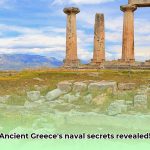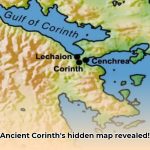Creating a character with an authentic ancient Greek name can be challenging. Many online name generators fall short, missing the nuances of this rich historical tradition. This guide delves into the captivating world of ancient Greek nomenclature, exploring its history, rules, and unique elements. Learn to effectively use online tools, identify their weaknesses, and generate believable names perfect for your story, game, or historical project.
Ancient Greek Names: A Journey into Hellenic Onomastics
Choosing a name for an ancient Greek character is more than selecting a pleasing sound; it’s about breathing life into your creation. Ancient Greek names carry stories – tales of family, era, and personality. While ancient Greek name generators offer convenience, understanding the historical context is crucial for authenticity. A well-chosen name adds historical credibility and depth to your character. For inspiration, explore resources focusing on Greek mythology names.
The Complexities of Ancient Greek Naming Conventions
Ancient Greek naming conventions were intricately woven, influenced by gender, family history, social standing, and geographical location. Understanding these elements is essential for using name generators effectively.
Gender was a significant factor. Names often included suffixes indicating whether the person was male or female. Male names frequently ended with sounds like “-os”, “-as”, or “-es”, while female names commonly ended with “-a”, “-e”, or “-o”. However, the system was evolving, and these weren’t universal rules.
Family names, or patronymics, were also vital. Derived from the father’s name, these indicated lineage. A person might be known as, for example, “Sophocles, son of Sophilus,” providing immediate insight into their family history. In some regions and time periods, matronymics (names derived from the mother) were also used, although less frequently. Discovering the history behind ancient Greek family names can deepen your understanding.
Nicknames added another layer. Frequently used in daily life, they often reflected personal characteristics or were shortened versions of formal names. For instance, “Philippos” might be affectionately known as “Philippos.” Many name generators overlook these common forms of address, diminishing a character’s realism.
Geographical origin significantly impacted names. Athens, Sparta, and other city-states had distinct naming traditions and popular names. A name common in Athens might be rare or non-existent in Sparta, reflecting the cultural diversity of ancient Greece.
Social class played a role, too. Aristocratic families often favored specific names passed through generations, while commoners might use more ordinary or regionally specific names.
Navigating the Labyrinth of Name Generators
Numerous online ancient Greek name generators exist, but their quality varies drastically. Some offer limited lists of common names, while others attempt more sophisticated inclusions of patronymics or nicknames. However, even the best generators often fail to capture the subtle nuances of different time periods, geographical regions, and social classes.
For instance, names prevalent in the bustling city-states of Athens during its Golden Age differed from those in rural villages or during the Classical and Hellenistic periods. Similarly, aristocratic families employed different naming conventions than commoners.
Consider this comparison:
| Feature | Basic Generators | Advanced Generators |
|---|---|---|
| Name Variety | Limited, common names | Extensive, including rare and region-specific names |
| Patronymics/Matronymics | Often absent | Frequently included with varying levels of accuracy |
| Nicknames/Diminutives | Rarely included | Sometimes included, often based on limited patterns |
| Historical/Regional Context | Generalized | Attempts period-specific and regional variations |
| Social Class Consideration | Generally absent | Sometimes attempts to differentiate aristocratic names |
Maximizing Your Name Generator: Strategies for Success
Follow these tips to generate authentic names:
- Consult Multiple Resources: Don’t rely on a single generator. Compare results from several to broaden your options.
- Context is Key: Account for your character’s time period, geographical origin, and social class. A farmer’s name will likely differ significantly from an aristocrat’s.
- Refine Your Search: Prioritize generators with filters for gender, historical period, geographical region, and social class.
- Cross-Reference: Verify generated names against historical texts, inscriptions, and scholarly articles.
- Consider Name Meanings: Research the meanings of potential names. Many Greek names have rich etymological roots and associations.
The Inherent Limitations of Technology
Even advanced ancient Greek name generators aren’t perfect. The historical record is incomplete, making absolute accuracy difficult. Think of these tools as helpful launchpads, not definitive answers. They enhance creativity but require critical evaluation. A touch of skepticism prevents over-reliance. While great for sparking ideas, use them cautiously and support them with thorough research. Exploring AI Greek name generator options can provide fresh perspectives but also come with limitations.
The study of ancient Greek names is dynamic, with ongoing research constantly refining our understanding. New discoveries may alter approaches to name generation. These tools offer a snapshot of current knowledge, not absolute truth. Use them to inspire, but explore further! A balanced approach, combining research and imagination, yields believable and historically rich characters. Consulting resources on Ancient Greek god names may yield unique, although specialized, options.
Accurately Reflecting Social Status and Time Period in Ancient Greek Names
- Ancient Greek naming conventions varied by era, region, and societal rank.
- Online generators offer a starting point, but critical evaluation is essential.
- Patronymics, suffixes, and historical trends are crucial for accuracy.
- Historical context refines generator results, enhancing authenticity.
Deeper into the Nuances of Ancient Greek Names
How do you craft a genuinely authentic ancient Greek name? Names reflected family lineage, social status, and the era. Using a random name generator alone might be inadequate; a deeper exploration is necessary. Did you know that Ancient Greek Warrior Names possessed powerful connotations?
Deciphering the Clues: Patronymics and Suffixes
Patronymics, names drawn from the father’s name (e.g., Demetrios Alexandrou, meaning Demetrios, son of Alexandros), offer genealogical insights. Suffixes often indicated gender; “-os” for males, “-a” for females. However, exceptions existed, emphasizing complexities. Consider this when using a How to accurately generate ancient Greek names reflecting social status and time period generator.
Traversing Time: Historical Context
Ancient Greek naming evolved over centuries. Names common in Classical Athens might be rare in the Hellenistic period, emphasizing the need for temporal specificity in your generator. What influences should shape your use of an Ancient Greek boy names generator?
Social Status: A Name’s Subtle Tale
Social standing influenced naming. Aristocratic families favored names passed down through generations, often reflecting mythological figures or heroic ancestors, distinguishing them from commoners. Simple generators may miss this nuance.
Enhancing Accuracy: Tips for Name Generation
- Select the Right Tool: Some generators offer greater historical detail. Look for options specifying time periods and social classes.
- Analyze the Output: Research the historical context of generated names; verify alignment with the intended era and social status.
- Refine Parameters: Adjust generator settings to experiment with different time periods and social classes.
- Explore Alternatives: If a generator proves unsatisfactory, consult historical records and scholarly works.
- Consider Regional Variations: Explore naming practices specific to regions like Attica, Sparta, or Macedonia.
Limitations of Name Generators
While helpful, name generators have limitations. They cannot capture the full range of ancient Greek naming practices. Use them to enhance creativity, not replace historical research.
Codex Nomina: Ancient Greek Names
Crafting Believable Characters: Ancient Greek Name Generation for Fiction Writers
- Numerous online tools exist, with varying degrees of accuracy and features.
- Careful selection of a name generator is crucial for believable characters.
- Understanding ancient Greek naming conventions enhances name selection.
- Generators are starting points; thorough research improves results.
Entering the World of Ancient Greek Names
Want to make your ancient Greek-inspired fiction vivid? Authentic names are key. How can you ensure your characters’ names sound true to the era? Simply using a random name generator might not suffice. Ancient Greek naming wasn’t arbitrary; it was rich with history and culture. Names mirrored family, status, and personality. Patronymics, names based on a father’s name, were common, adding authenticity that generators often miss. Were Ancient Greek city names ever used as personal names?
Beyond Simple Generation: Understanding Nuances
Many online Ancient Greek Name Generation for Fiction Writers: Crafting Believable Characters tools exist, with varied accuracy. Some create names that sound Greek, while others reflect historical patterns. Choose between a perfect imitation of a Greek sculpture and the real thing – one captures the essence, the other holds history.
Practical Guide: Choosing the Right Tools
Websites offer Ancient Greek Name Generation for Fiction Writers: Crafting Believable Characters. Namegenerators.cc1 balances ease of use with relatively accurate name generation. Remember, even the best generators are tools, not definitive sources. Double-check generated names in reliable historical resources.
Use a generator effectively by:
- Selecting your generator: Review the website’s methodology.
- Experimenting with options: Most generators let you choose male or female names.
- Considering the time period: Naming conventions evolved over centuries.
- Researching generated names: Verify names against historical sources.
Adding Depth to Your Characters: Enhancing Your Choices
The best names are authentic and fit the character’s context, subtly hinting at their personality or social standing. Consider nuances and common personality-reflecting nicknames. Do ancient Greek female names share common etymological roots? Do names from specific regions (e.g., Ionia, Attica) share characteristics?
Harnessing AI for Ancient Greek Names in Video Game Development
- AI speeds up the process of generating ancient Greek names.
- AI creates names consistent with historical patterns, including gender, region, and social status.
- AI avoids anachronisms, producing unique and realistic names.
- Current AI models may not fully capture the complexity of naming or subtle cultural nuances.
- Bias in training data is a potential concern, requiring careful review.
- Human oversight is crucial for cultural accuracy, sensitivity, and creative control.
Unveiling the Stories Within Ancient Greek Names
Ancient Greek names were more than labels; they held clues to family, social standing, and beliefs—miniature historical narratives that add authenticity to your game. What role did Ancient Greek mythology names have in daily naming?
AI’s Transformative Power
AI-powered name generators are a significant leap forward, drastically reducing the workload of manually creating names. AI leverages vast datasets to produce plausible and varied names. But are they foolproof?
Accuracy Challenges
While AI accelerates, it’s not magic. Current models may struggle with nuanced regional variations or the evolution of names. Data used to train AI models might contain biases that could inadvertently influence generated names.
Ensuring Accuracy
To ensure AI-generated names meet historical standards:
- Choose a Reputable Generator: Select a well-regarded generator with reliable data sources.
- Understand Limitations: Recognize that AI may not capture every nuance.
- Context is Key: Consider the historical period, region, and social class.
- Verify and Refine: Review generated names, checking against historical records.
- Seek Expert Advice: Consult a classicist for pinpoint accuracy.
Practical Application: Game Development
Crafting a historical strategy game? AI-powered name generators can populate your game with thousands of plausible characters, enhancing immersion and freeing up time for other development aspects.
Beyond Games: A Broader Perspective
AI name generation benefits writers, educators, and businesses. Always remember responsible AI usage: human intervention ensures cultural sensitivity and historical accuracy. What challenges arise in developing a reliable Ancient Greek name translator?
-
Namegenerators.cc. Ancient Greece Name Generator. https://www.namegenerators.cc/ancient-greece-name-generator ↩
- Discover Ancient Greece Weapons: A Comprehensive Guide to Military Technology - August 8, 2025
- Discover Ancient Greek Swords: A Comprehensive Guide - August 8, 2025
- Explore Ancient Athens: Unveiling the City’s Secrets Through Maps - August 8, 2025















